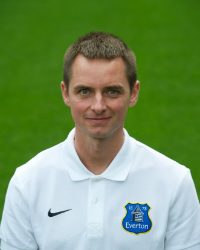
A recent review of current treatment used in elite sports medicine to treat hamstring injuries got me thinking about how far has our profession actually progressed in recent times. Despite massive investment and burgeoning auxiliary professions, many of the treatments we employ are no better than placebo under proper scrutiny. Anti-inflammatory medication for example is used widely in elite sport and yet there is more and more evidence arising that for soft tissue injuries they may actually retard rather than expedite healing. There has been a huge movement towards injury prevention and in my current role I am contacted daily by companies marketing their latest method of prevention.
In this fast changing evidence-based culture in which we operate,how can we best serve the athletes we look after and at the same time serve the coaching staff and institution we are employed by? In my opinion and experience the foundations that have served us so well for hundreds of years remain the bedrock of effective practice and will remain so. The current literature and innovation must be considered and reflected upon, but the foundations must remain in tact.
It may bode well for us to reflect upon the Hippocratic Oath when is states:
'I will prescribe regimens for the good of my patients..... And never do harm to anyone'.
Competition and financial implications of success are irresistible in sport these days and the aspirations of the stakeholders involved in the care package of an athlete may not always appear to be aligned. However, I would contest that their aspirations are always aligned when the long term health and well-being of the athlete is paramount and this always has to be the case. All parties will be best served in the long run if this axiom is held true and any attempt to short cut this process will fail.
It's not inconceivable to find yourself in a position where the athlete and the coaching staff are desperate to play in the next game and you know it's not in their best interest! This is when your communication skills come into play, by convincing the management it is the best thing for the player and hence the team and explain and cajole the player into preparing for the more sensible option.
Diagnosis has always been pivotal in the treatment of any patient and technology has made great strides in this direction. It is essential that we are using the very best of imaging technology and have the most accomplished network of specialists available to interpret. In the sports arena we are at the mercy of our radiological specialists and technology. Although radiology is only a part of the diagnostic story, if mis interpreted it can lead to potential dis-illusion and re-injury in the rehabilitation process. Expectations are a natural human consequence and they can be difficult to manage if the radiology is slightly off centre.
Working with elite athletes is incredibly rewarding and we are in a very privileged position to be able to serve them. Many of the latest technologies and ideas are based upon physical data and markers and are founded on a mechanistic view of the human being. I feel there is huge potential in treating the athlete in a truly 'holistic' manner in the future.
Athletes are subject to the same human experiences as everyone and this is often overlooked in physically dominant world of sport. Aristotle suggested that 'soul and body react sympathetically upon each other'. I thoroughly agree with this and without negating the physical data, which has equal importance, feel that by looking more thoroughly at the heart, mind and soul of the athlete we create a more well balanced and happy athlete of the future.
It has been quite striking how significant it has been for our players to experience deep relaxation. It has been significant for them because it is a new feeling and also because the majority of their experience is lived in a highly competitive world requiring effort. So much available literature supports the effect of the brain and emotions on the body and yet I feel it is an untapped resource in professional sport.
It is difficult to imagine where we will be in the future of our profession, but it is an inescapable truth that we will have to affect the whole being of the athlete for optimum performance and I certainly hope there is a cultural shift in this direction.
Danny Donachie is the Head of Medical Services at Everton Football Club.
Global Sports: the world’s leading specialist careers platform for the international sports industry